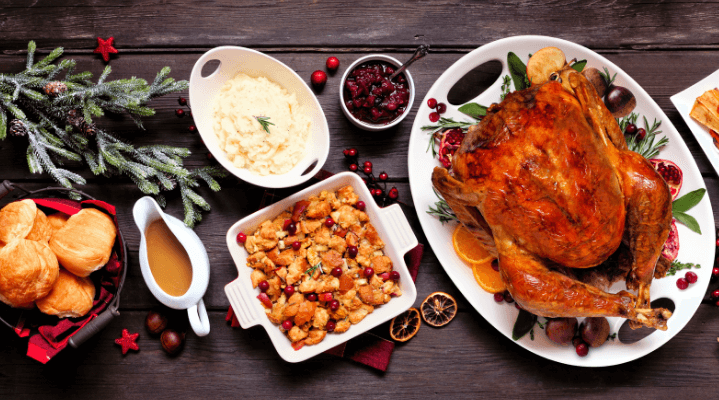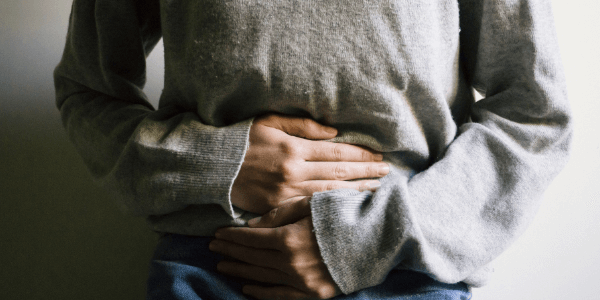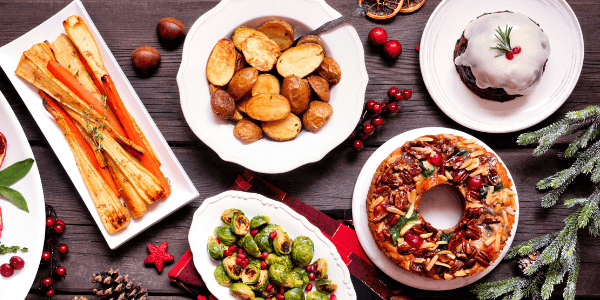
As Christmas draws closer and the fridge gets fuller, you may be looking for ways to alleviate some uncomfortable stomach and bowel problems that are common around Christmas time. But rather than reaching for the Rennie, Mr James Kinross has offered some advice to not only help your digestion over the festive period, but stave off longer term problems that my occur.
Why is Christmas Dinner an issue?
Christmas is a time for overindulgence, both in terms of the quantities of food we eat as well as the quality of festive food. A sustained period of unhealthy eating affects the microbiome, our intestinal habitat of millions of microbes, their genomes and their surrounding environmental conditions, which requires a varied diet in order to function properly.
Eating fatty foods and processed meats, like Christmas pigs in blankets, or having too much sugar doesn’t give the microbiome the diversity of nutrients it needs, which can take its toll on the body. Drinking too much alcohol has a similar effect.
A diverse microbiome of friendly bacteria is important for our health because it prevents the growth of pathogens that cause certain health conditions, but the gut microbiome also regulates many of our essential bodily functions that are needed for wellness.
The gut has proven links to several serious health conditions including obesity, diabetes, cardiovascular disease and may even affect certain mental health disorders.

What colorectal complaints are patients making post-Christmas?
A front-runner for post-Christmas complaints is weight gain and bloating. Increased consumption of fatty or sugary food automatically slows down digestion, and an unhealthy gut causes symptoms of irritable bowel syndrome and bloating.
Bloating can also be a sign of food intolerances and autoimmune conditions of the gut associated with gluten consumption such as coeliac disease. More rarely it is a sign of inflammatory diseases of the gut, such as Crohn’s disease or certain cancers such as stomach and colonic cancer.
If you notice you’re bloating very often, or if it is especially painful, you should go and see a doctor. You should also seek help if you are experiencing symptoms such as weight loss or a persistent change in your bowel habits.
Over Christmas, many people consume more alcohol than usual. Alcohol also disrupts the balance of bacteria, and it changes the way that they function, causing inflammation. This has important implications for the health of the liver.

How can you make some gut-friendly exchanges?
The microbiome loves fibre, so aim to eat 30g per day. Incorporate a healthy plant-based diet into your traditional Christmas meals. Try adding vegetables such as Brussel sprouts, and if your Christmas plate of food has lots of colour it will be better for you. Have a fruit salad instead of mince pies or a Christmas pudding!
Prepare your own food and avoid takeaway or ready meals and try not to snack. Socialising is an important method that the microbiome uses to maintain its diversity, and this has been hard through Covid. But getting together to eat with your family and friends will really help.
“Try and moderate your alcohol consumption and make sure you’re drinking plenty of water if you do choose to enjoy alcohol during the party season. The gut microbiome prefers red wine to beer.
You should really start to feel the benefits of these changes in just two weeks too, which bodes well for a happy new year!
More information
- If you’re concerned about any aspect or symptom discussed in this article. speak to your GP who can discuss a range of treatment options with you.
- If you don’t have access to a GP, you can make an appointment with one of our same day private GPs.
- We also have a specialist Gastroenterology Department here at the King Edward VII’s Hospital in Central London, that treats paitents suffering with a wide range of gastrointestinal conditions
Article Sections
Latest Hospital News
Should you wish to speak to our press team, please visit Press Enquiries





